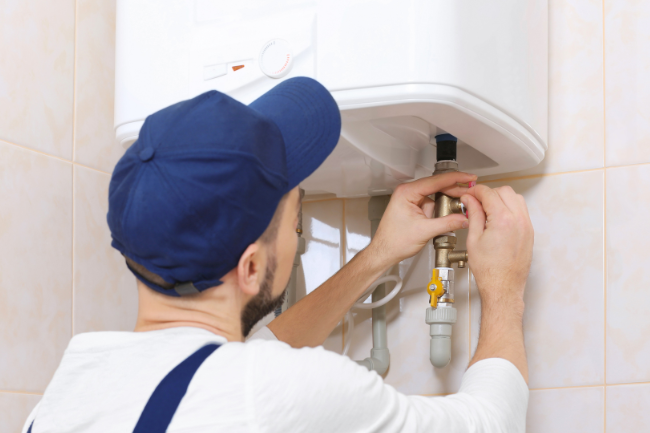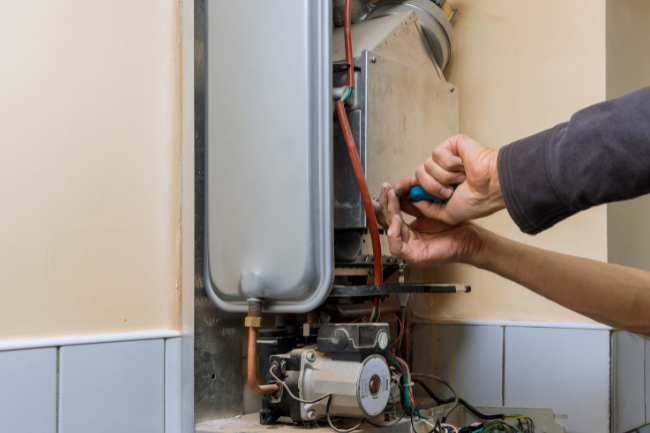Does Cold Weather Affect Hot Water Heater? Tips for Winter
Posted by William Heinselman on

As we enter the winter months, homeowners often wonder if their hot water heaters can withstand the cold temperatures. Understanding the impact of cold weather on your water heater is crucial for efficient performance and longevity.
How Cold Weather Impacts Your Hot Water Heater
Cold weather can significantly impact the performance of your hot water heater. As temperatures drop, the water entering your home is much colder, requiring your heater to work harder to reach the desired temperature. This increased workload can put a strain on the system, potentially leading to wear and tear over time.
Additionally, cold weather can cause pipes to freeze, which not only affects water flow but can also lead to significant damage if the pipes burst. Proper insulation of pipes and the hot water heater itself can mitigate some of these issues, ensuring that your system operates efficiently even in the coldest months.
Signs Your Hot Water Heater is Struggling in Winter
Here are some common signs that indicate your water heater may be struggling to keep up amidst colder conditions.
- Noticeable drop in water temperature, indicating the heater is overworked.
- Longer wait times for hot water.
- Unusual noises emanating from the heater.
- Visible leaks around the unit.
- Increase in energy bills, suggesting higher power consumption to maintain performance.
If you notice any of these issues occurring, it's important to call a professional as soon as possible, so the situation doesn't get worse and you're left without hot water.
10 Essential Maintenance Tips for Winterizing Your Hot Water Heater

Proper maintenance of your hot water heater before the winter months can ensure its efficiency and longevity, saving you from unexpected breakdowns during the coldest times of the year. Here are some essential tips to prepare your water heater for winter:
1. Inspect for Leaks and Corrosion
Check your water heater for any signs of leaks, rust, or corrosion around the tank, pipes, and valves. Address these issues immediately to prevent further damage and ensure the system functions effectively during the winter.
2. Flush the Tank
Over time, sediment and mineral deposits can build up in the tank, reducing efficiency and potentially causing damage. Drain and flush the tank to remove debris, allowing the heater to work more efficiently and heat water evenly.
3. Test the Pressure Relief Valve
The pressure relief valve is a crucial safety feature that prevents the tank from over-pressurizing. Test the valve by lifting the lever to ensure it releases water and snaps back into place. If it doesn’t function correctly, replace it.
4. Check and Insulate Pipes
Inspect the pipes connected to your water heater and wrap them with insulation sleeves or heat tape. Insulating pipes prevents freezing and reduces heat loss, which helps maintain water temperature during frigid weather.
5. Lower the Thermostat
While it may seem counterintuitive, setting the thermostat to 120°F (49°C) can reduce energy consumption and prevent scalding while still keeping water adequately warm for use during winter.
6. Install a Water Heater Blanket
Older water heater models may not have sufficient built-in insulation. Adding an insulating water heater blanket around the tank can help retain heat and improve efficiency in colder climates.
7. Inspect the Anode Rod
The anode rod prevents rust from corroding the tank by attracting corrosive elements in the water. Check the rod for excessive wear, and replace it if it’s less than half an inch thick or coated with calcium buildup.
8. Switch to Vacation Mode (if applicable)
If you plan to be away for an extended period during winter, switch the heater to vacation mode or set it to the lowest temperature setting. This prevents unnecessary energy use while keeping the system safe from freezing.
9. Perform a Pilot Light Check (for Gas Heaters)
For gas water heaters, ensure the pilot light is functioning correctly. If it’s out or flickering, relight it according to the manufacturer’s instructions or call a professional if needed.
10. Schedule a Professional Tune-Up
Consider hiring a licensed technician for a comprehensive inspection and maintenance check. Professionals can identify potential issues early and ensure your water heater is in optimal condition to withstand winter’s demands.
By following these steps, you can ensure your water heater operates efficiently and reliably throughout the winter months, keeping your home comfortable and your energy bills in check.
Energy-Efficient Upgrades to Consider for Cold Weather

Installing a tankless water heater can be a great energy-efficient upgrade. These units heat water on-demand, reducing the energy wasted in keeping a tank of water hot all the time.
Another upgrade to consider is a heat pump water heater, which uses electricity to move heat from one place to another instead of generating heat directly. This can be significantly more efficient, especially in moderate climates.
Additionally, adding a timer to your water heater can help reduce energy consumption by ensuring the heater only runs when necessary. Smart thermostats can also provide better control over your heating system, allowing you to optimize performance and energy use.
When to Call a Professional
While homeowners can do many maintenance tasks, there are times when it's best to call an expert. If you notice persistent issues such as leaks, inconsistent water temperature, or strange noises, it's a good idea to have a professional, like Express Sewer and Drain, inspect your system.
A qualified technician can perform a comprehensive checkup, identifying and addressing potential problems before they become major issues. Regular professional maintenance can prolong the life of your hot water heater, ensuring it runs efficiently throughout the winter and beyond.
Topics: Water Heaters, Home Plumbing






